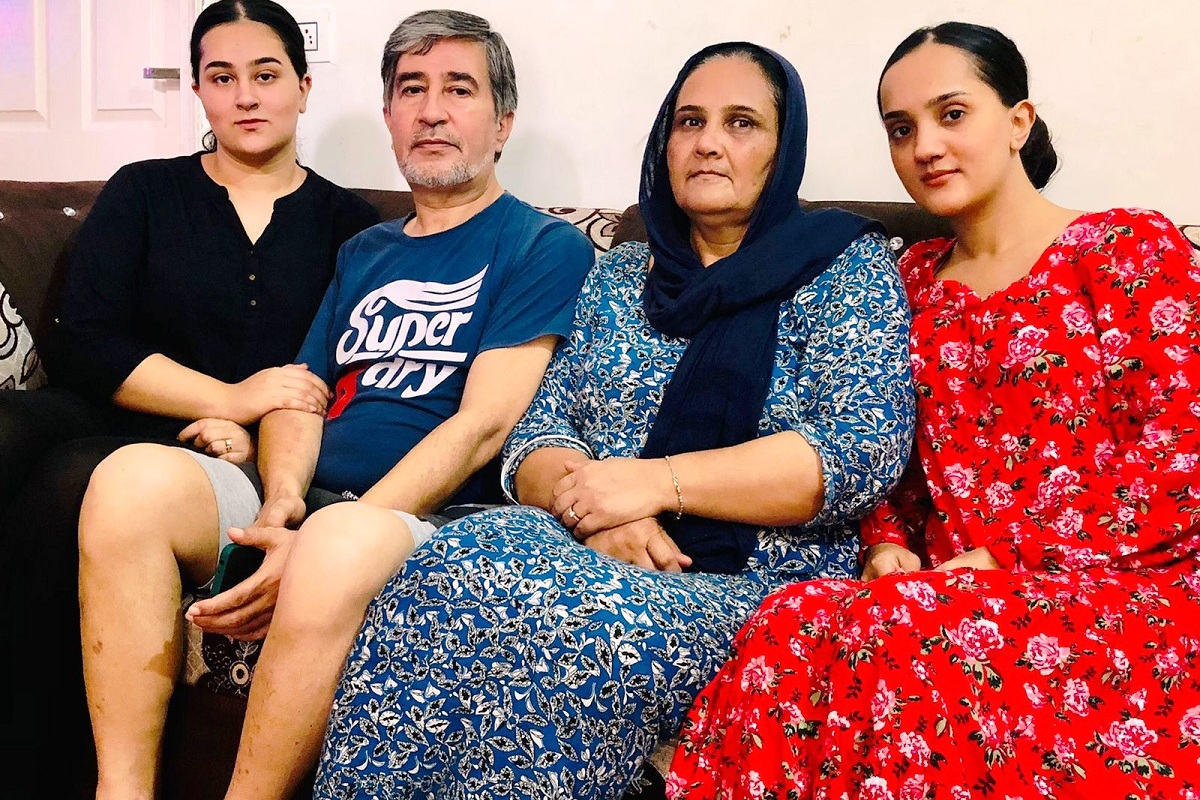With the Taliban taking control of Afghanistan and rechristening the country as the Islamic Emirate of Afghanistan, Afghans in India are watching the development with horror amid fear of the return of the Islamist group’s brutal rule in the country from 1996 to 2001.
An Afghan refugee living in Mohali (Near Chandigarh), Zakia Sarwary (52) said she is fearing for two married daughters residing in Kabul as women will suffer the most under Taliban rule as the fundamentalist force will install the hardline version of Sharia law, which was imposed by the Taliban the last time they controlled Afghanistan, denying education or employment to females.
“Taliban is anti-women. They will close all doors for women be it’s for education or employment, I myself was doing a job in Kabul till the Taliban took over in 1996. Once they wrested power, I had to sit home and lead a normal life,” Zakia told The Statesman in an interview from her residence.
“My question is if as an Islamic country, Pakistan can allow women education and employment, why can’t the Taliban do the same?” she added. A visibly upset mother of six, Zakia said her family will never think of returning to Afghanistan. “We want peace but it’s not possible in Taliban rule. They beat up and abuse women,” Zakia said.
Her husband, Colonel Siad Jawad Sarwary (55), retired from the Afghan Army four years back before the family took refuge in India.
“My elder daughter in Kabul is really living in fear. Just yesterday, when she went out to buy vegetables near her house on Sunday, a brand new car was snatched from its owners by gunmen posing as Taliban fighters. They fired a few shots in their air before fleeing with the car. You can imagine the fear such incidents instill in the mind of the public,” he said.
Sarwary, who is in touch with relatives and friends back in Afghanistan, said people there are fearing the repeat of the Taliban regime in which they tortured common people and women in particular.
“They (Taliban) for sure will not allow cinema, music or family functions outside. The dress code will be enforced with women forced to remain clad in Burqa and men in Salwaar Kameez. Men also need to grow a beard and offer Namaz in a masjid while women will be barred from going to masjids,” he said.
Sarwary’s two daughters and one son are currently living with them in India.
“Women have no right under Taliban rule despite the fact that there is nothing like this in Islam or Quran. But the Taliban is against women, so schools and colleges will be closed for girls. My sisters in Kabul have not been able to sleep for a week due to firing and bomb blasts. It’s a new experience for their children,” said Madina Sarwary (21).
Her younger sister Munaza Sarwary, who studied in Kabul till Class VIII before coming to India, said even then the Taliban used to target schools for girls. “I remember attempts were made to poison the tap water in schools and acid attacks also used to take place on female students,” Munaza said.
“As the Taliban took over Kabul, my maternal aunt’s daughter resigned from her job because she feared getting killed by the Taliban for carrying on with her job. Now she wants to leave Afghanistan but we don’t know if she will succeed or not,” she added.
Munaza said a young girl, aged 12, was married against her wish to a Taliban man and she fears such things will become common under the Islamist group’s rule. Under previous Taliban rule, covering full face in public was mandatory for women and they could not leave home without a male companion. Public floggings and executions, including stoning for adultery, were carried out in city squares and stadiums.









